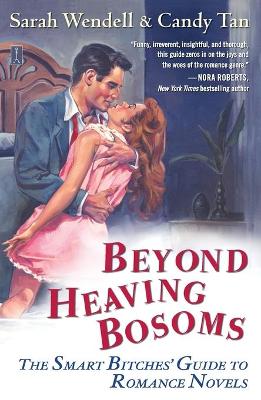
celinenyx
And that's completely fine! Beyond Heaving Bosoms, though it takes plenty of time to reassure romance readers that their opinions are valid, is a fabulously funny look at the romance genre. It pokes fun at the garish covers, the heroes and their magic penises that can cure the heroine of everything, and all of the clichés you can think of. I especially like that it addresses the more serious problematic sides of romance publishing (racial exclusivity, community backlash) as well as underlining the fact that romance is fiction, and that it's supposed to entertain. It occasionally touches on academic research, but doesn't delve into it much. Understandably, as that might drag the narrative too much - academic writing is notoriously dense. I appreciate that the authors were thorough in their referencing, which seems to be the exception rather than the rule in popular non-fiction.
I read Beyond Heaving Bosoms with a vaguely feminist intention. Romance fiction is largely written by women, for women. It has been the target of much backlash over whether or not it reiterates patriarchal values or not (the goal is, in the end, to marry). Though the authors are a bit careful in taking a strong stance in this debate, I would say that ultimately, the romance novel is ambivalent. Reading practices themselves can be subversive, and there is much to say about having a woman's happiness as the main focus of a novel. On the other hand, romances can be quite problematic in their content (rape scenes, anyone?)
I came for criticism by romance readers themselves, and stayed for the plethora of dick jokes. Highly recommended reading for lovers of snarky humour and a tongue-in-cheek exploration of the genre.
* The only notable exceptions seem to be J.R. Ward's Black Dagger Brotherhood books, and Kirsten Callihan's Darkest London books.

